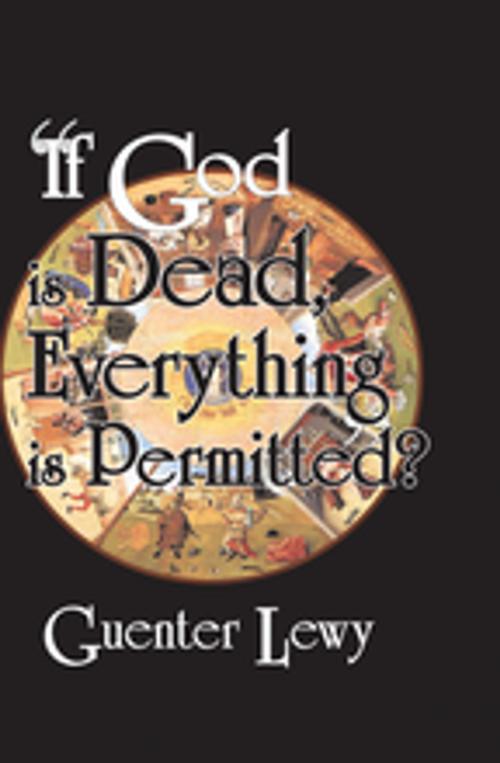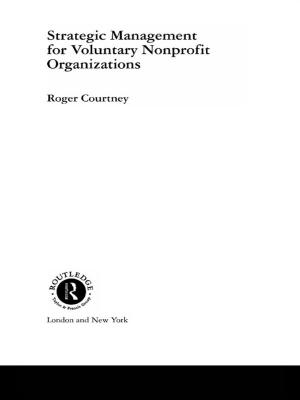If God is Dead, Everything is Permitted?
Nonfiction, Social & Cultural Studies, Political Science, Politics, History & Theory, Religion & Spirituality, Philosophy| Author: | Guenter Lewy | ISBN: | 9781351513692 |
| Publisher: | Taylor and Francis | Publication: | July 28, 2017 |
| Imprint: | Routledge | Language: | English |
| Author: | Guenter Lewy |
| ISBN: | 9781351513692 |
| Publisher: | Taylor and Francis |
| Publication: | July 28, 2017 |
| Imprint: | Routledge |
| Language: | English |
Dostoevsky's dictum that when God is dead everything is permitted can have several meanings. It can refer to the behavior of individuals suggesting that someone who is or becomes an unbeliever will conduct himself immorally. Alternatively, the saying can pertain to the moral character of an entire country and mean a society that rejects God is doomed to moral decay. Guenter Lewy presents a few of the major arguments of those who question the relationship between morality and religion, and examines the case for the continuing dependence of morality upon religion.Beginning with Dostoevsky's The Brothers Karamazov Lewy introduces the reader to the position that morality depends on religious belief. He then follows the idea throughout history, from its origin, to its extension during the Enlightment, to the Victorians, to the roots of atheism. Lewy then presents a critical discussion of Sweden as a model of a secular nation where morality is retained although most of the population is not religious. He shows that Sweden offers a serious and unique illustration of how democracy and morality can flourish in a post-modern environment.If God is Dead, Everything is Permitted? as the author acknowledges, is more of an essay than a seemless history of the relationship of religion and morality. Lewy's fascination with the intersection and influence of religion on morality is not a new topic. Indeed the discussion is important and alive today in light of new technological and scientific advances. Although Lewy may not put closure to the debate about whether morality is dependent on religion the evidence presented here sheds light on the morality of today by examining its historical past.
Dostoevsky's dictum that when God is dead everything is permitted can have several meanings. It can refer to the behavior of individuals suggesting that someone who is or becomes an unbeliever will conduct himself immorally. Alternatively, the saying can pertain to the moral character of an entire country and mean a society that rejects God is doomed to moral decay. Guenter Lewy presents a few of the major arguments of those who question the relationship between morality and religion, and examines the case for the continuing dependence of morality upon religion.Beginning with Dostoevsky's The Brothers Karamazov Lewy introduces the reader to the position that morality depends on religious belief. He then follows the idea throughout history, from its origin, to its extension during the Enlightment, to the Victorians, to the roots of atheism. Lewy then presents a critical discussion of Sweden as a model of a secular nation where morality is retained although most of the population is not religious. He shows that Sweden offers a serious and unique illustration of how democracy and morality can flourish in a post-modern environment.If God is Dead, Everything is Permitted? as the author acknowledges, is more of an essay than a seemless history of the relationship of religion and morality. Lewy's fascination with the intersection and influence of religion on morality is not a new topic. Indeed the discussion is important and alive today in light of new technological and scientific advances. Although Lewy may not put closure to the debate about whether morality is dependent on religion the evidence presented here sheds light on the morality of today by examining its historical past.















